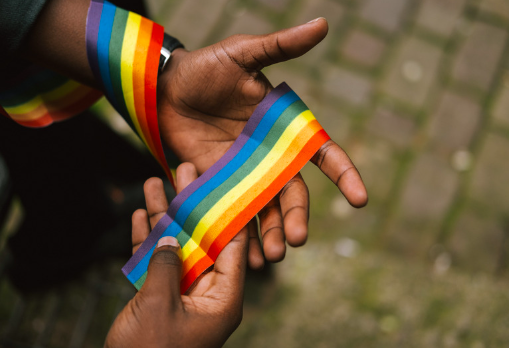
UN Member States Should Call on Malawi to End Torture Against LGBTIQ+ Persons
READ THE FACTSHEET READ THE JOINT SUBMISSION
As States prepare for the UN Human Rights Council’s review of Malawi in November 2025, with discussions already starting in August, REDRESS, the Centre for Development of People (CEDEP), and other Malawian organisations are urging UN member States to press Malawi to take concrete steps to prevent and address torture and ill-treatment of LGBTIQ+ persons. The Universal Periodic Review (UPR) process offers a vital opportunity for States to recommend meaningful reforms to Malawi and for civil society organisations to share first-hand information ahead of the review, helping ensure States’ proposals address the realities faced by LGBTIQ+ persons in the country.
Mada (not his real name) was arrested and tortured by police officers in Malawi simply because they perceived him to be gay. While in detention, he was severely beaten and verbally abused by officers, solely on the basis of his presumed sexual orientation. Chisomo (not her real name), a transgender woman, was also arbitrarily arrested. At the police station, she was forced to undress in front of officers to “prove” her identity and was physically assaulted while being interrogated about who had “influenced” her to identify as gay.
Mada and Chisomo’s experiences are not isolated. They reflect the lived reality of many LGBTIQ+ individuals in Malawi who are routinely subjected to torture, ill-treatment, and other human rights violations because of their actual or perceived sexual orientation or gender identity. These acts are a manifestation of deep-seated societal and institutional discrimination.
Documentation gathered by CEDEP and nine national and community-based organisations across Malawi has revealed alarming and consistent patterns of violence and abuse against LGBTIQ+ individuals. These include torture and ill-treatment by State authorities, as well as threats, intimidation, extortion, and harassment. Police have stripped transgender women naked to “verify” their gender, beaten transgender men, subjected lesbian women to sexual violence intended to “correct” their sexual orientation, and caned gay men in custody under the guise of “behavioural correction”. Survivors are often denied medical care or mocked when they seek help. These practices frequently amount to torture or ill-treatment and create a climate of fear and silence.
This violence is compounded by Malawi’s criminalisation of consensual same-sex conduct, which was upheld by the Constitutional Court in June 2024. Instead of protecting society, these discriminatory laws legitimise stigma and contribute to an environment which effectively encourages violence by both State officials and non-State actors. The same laws also create barriers to justice, as many survivors are too afraid to report abuses for fear of arrest, retaliation, or public exposure.
Despite constitutional guarantees against torture and its international commitments under the UN Convention against Torture (UNCAT), Malawi has yet to criminalise torture in its domestic legal framework. As a result, survivors like Mada and Chisomo are denied justice, perpetrators go unpunished, and investigations are rare or inadequate. Without urgent reforms, these patterns of violence will continue.
In a joint submission to the UN Human Rights Council’s 4th Universal Periodic Review of Malawi, REDRESS, CEDEP, and the nine Malawian organisations (Social Justice Foundation, Optimum Foundation, Angaza Foundation, Gender Collective, Community Health Rights Advocacy, Ask for Equality, Nyasa Rainbow Alliance, the Centre for Key Population Rights, and the Ivy Foundation) highlighted these abuses and called on the international community to act.
In their recommendations at preparatory meetings and during the review itself, we invite UN member States to consider proposals highlighted in our Factsheet, and to urge Malawi to:
- Criminalise torture as a separate offence in line with Article 1 of UNCAT.
- Prevent and address discriminatory torture against LGBTIQ+ persons, including by repealing discriminatory laws that fuel or enable this practice, such as the criminalisation of consensual same-sex conduct.
- Ensure effective investigations of allegations of violence against LGBTIQ+ persons, including by establishing an independent investigative body and developing specific guidelines for investigating discriminatory torture.
- Provide mandatory, ongoing training on the rights of LGBTIQ+ individuals and anti-torture standards for law enforcement officials and other State institutions.
Photo by Anete Lusina.
